1 ADVANCE UNEDITED TEXT – FOR INFORMATION PURPOSES ONLY Commission for Social Development Forty-fifth session 7-16 February 2007 Item 3 …
Emerging Adulthood A Theory of Development From the Late Teens Through the Twenties Jeffrey Jensen Arnett University of Maryland College Park
Biologically, an adult is a human or other organism that has reached sexual maturity.In human context, the term adult additionally has meanings associated with social …
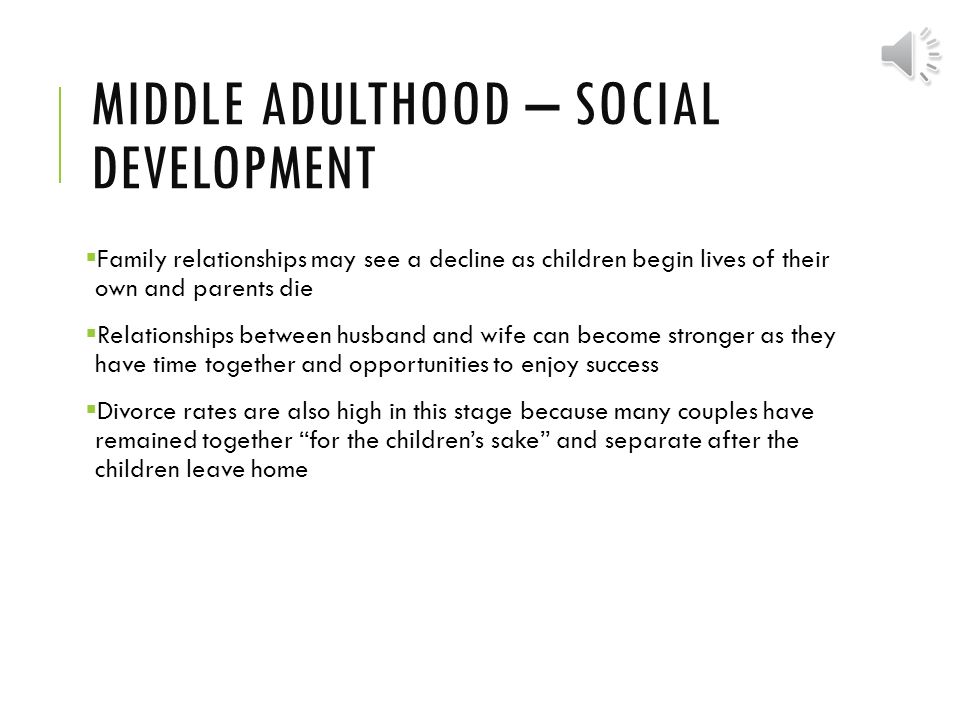
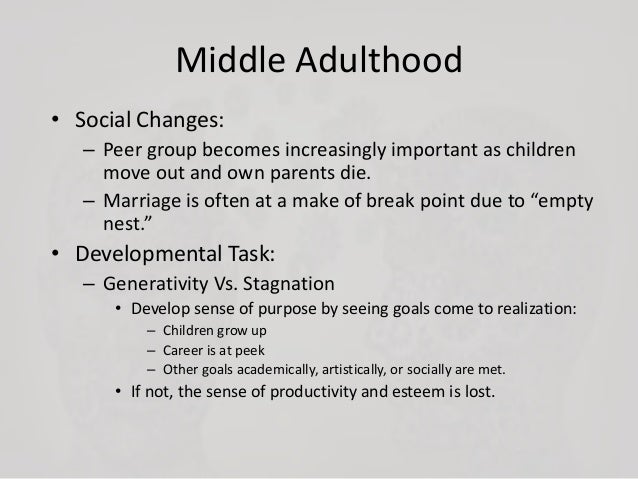
What is Lifespan Development? Understanding the concepts of life-span development and how changes occur physically, mentally and socially across a person’s lifespan.
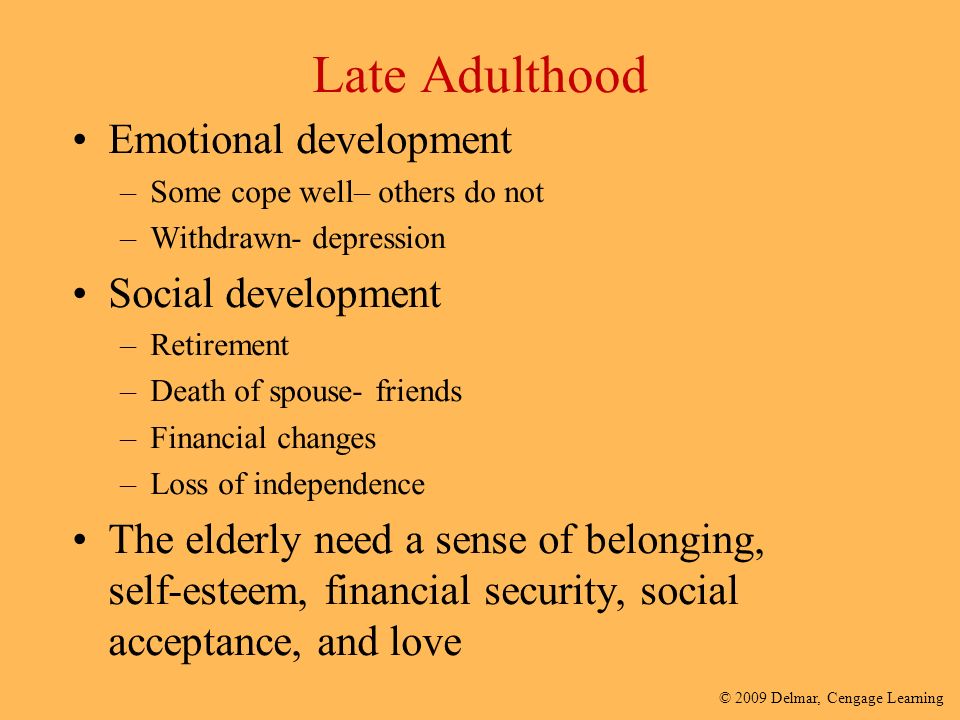
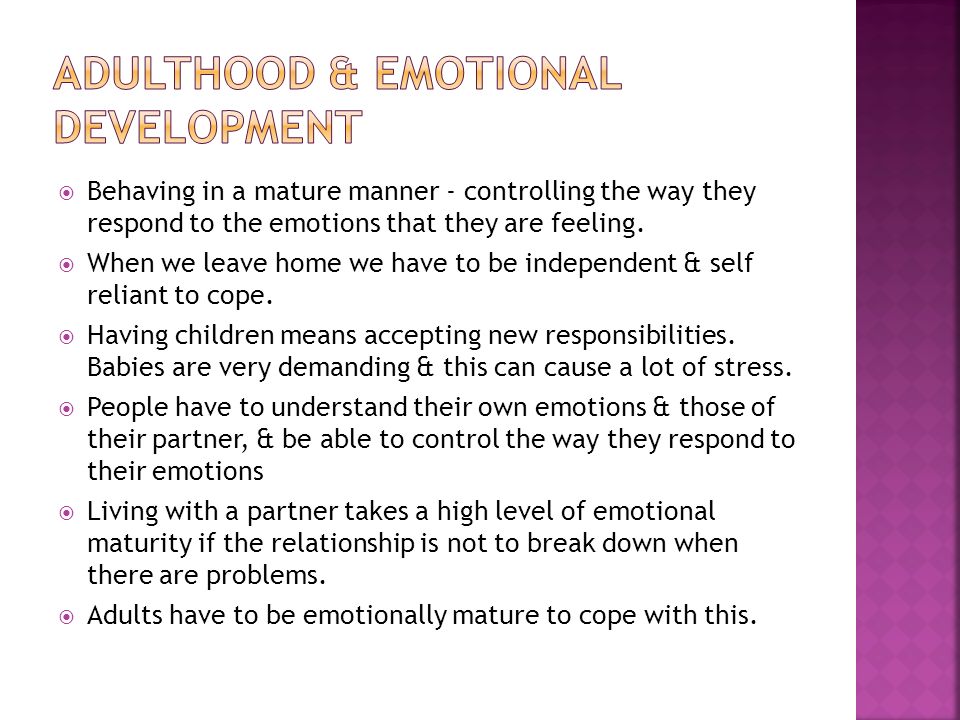
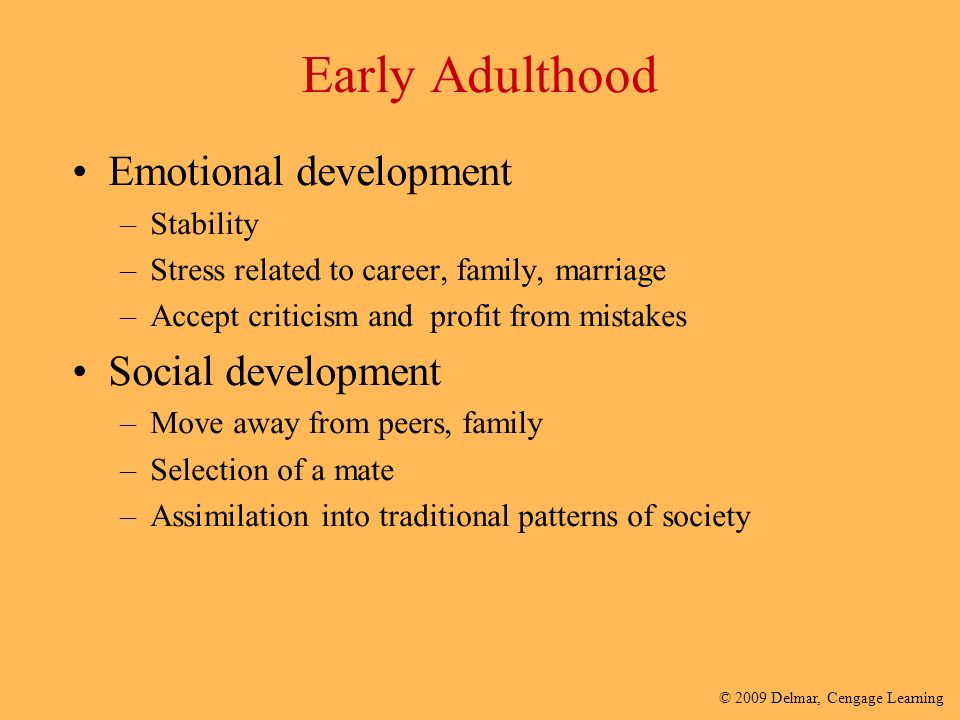
Your doesn’t need expensive toys or DVDs to benefit from play time, and the effects of healthy play time will follow them into adulthood.
While tweens and teens are growing across all areas, in none is it more obvious than their social/emotional development! These changes coincide with the transition to middle college, which demarcates the shift to cence as we think of it.
Learn about the theories associated with Middle Adulthood Development and careers available in the middle adulthood development psychology field.
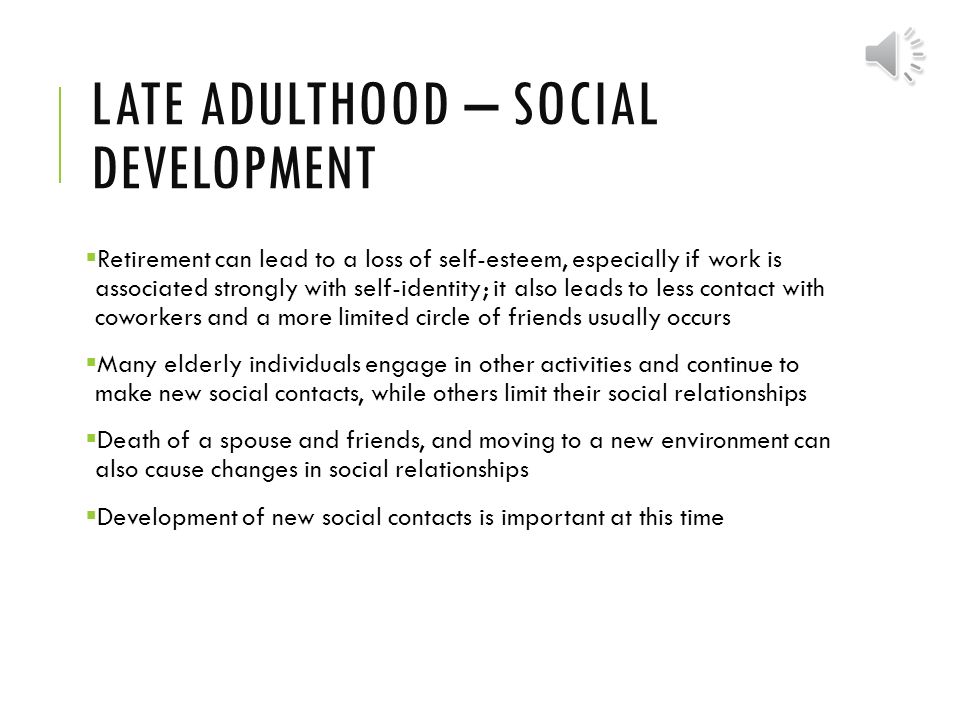
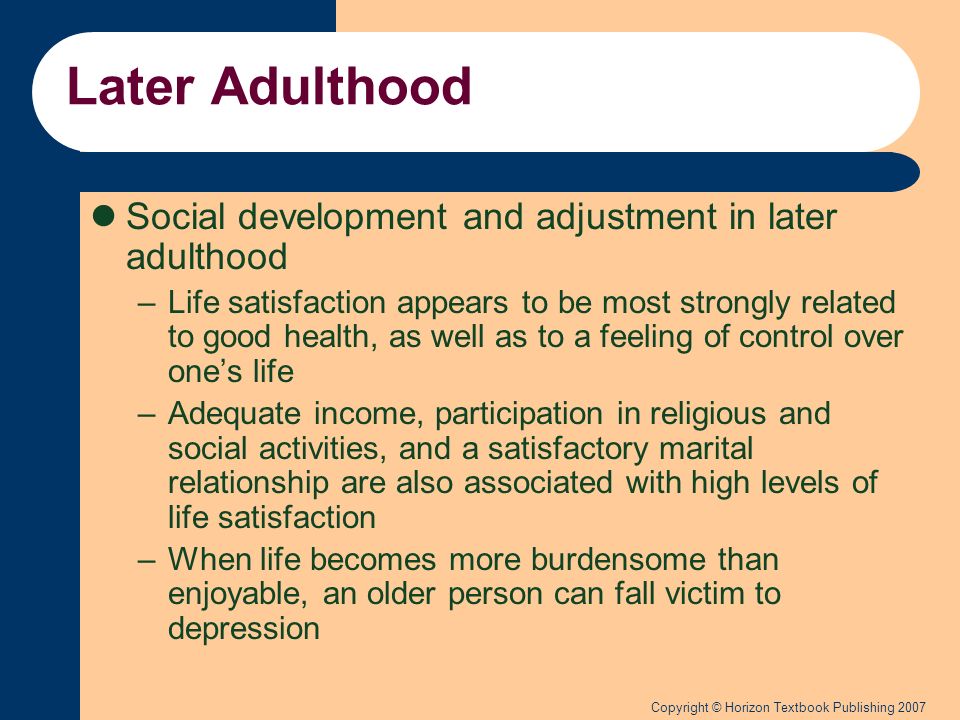
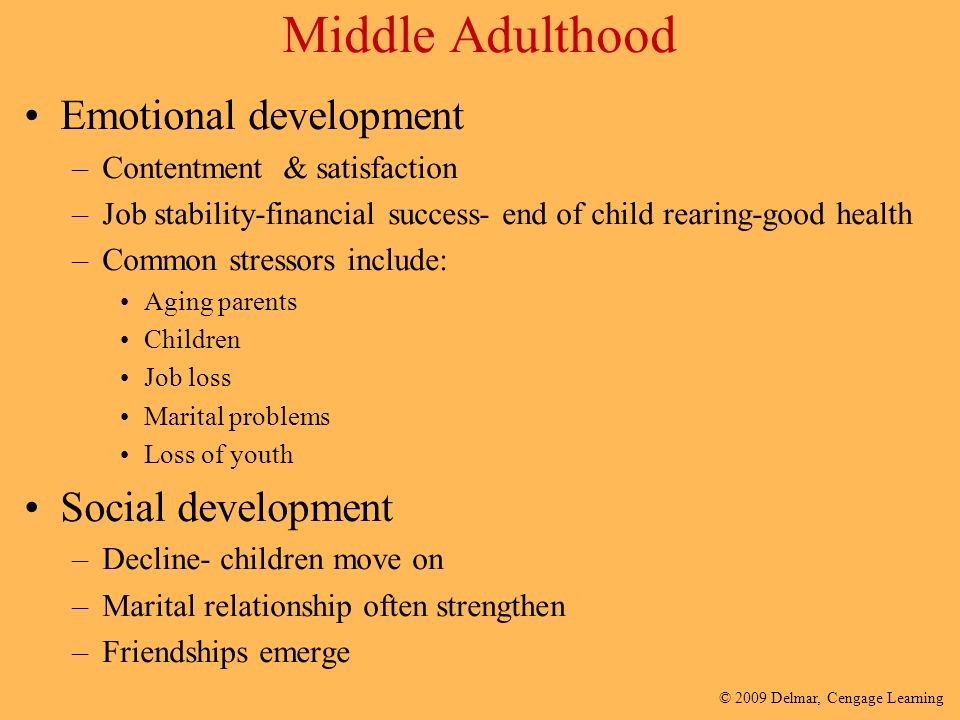
Middle age comes with many new physical challenges, from wrinkles to hearing loss to weight gain. This lesson examines many of the signs of aging that are common in middle adulthood and how people can fight middle age weight gain.
Learn about the theories associated with Early Adulthood Development and careers available in the early adulthood developmental psychology field.

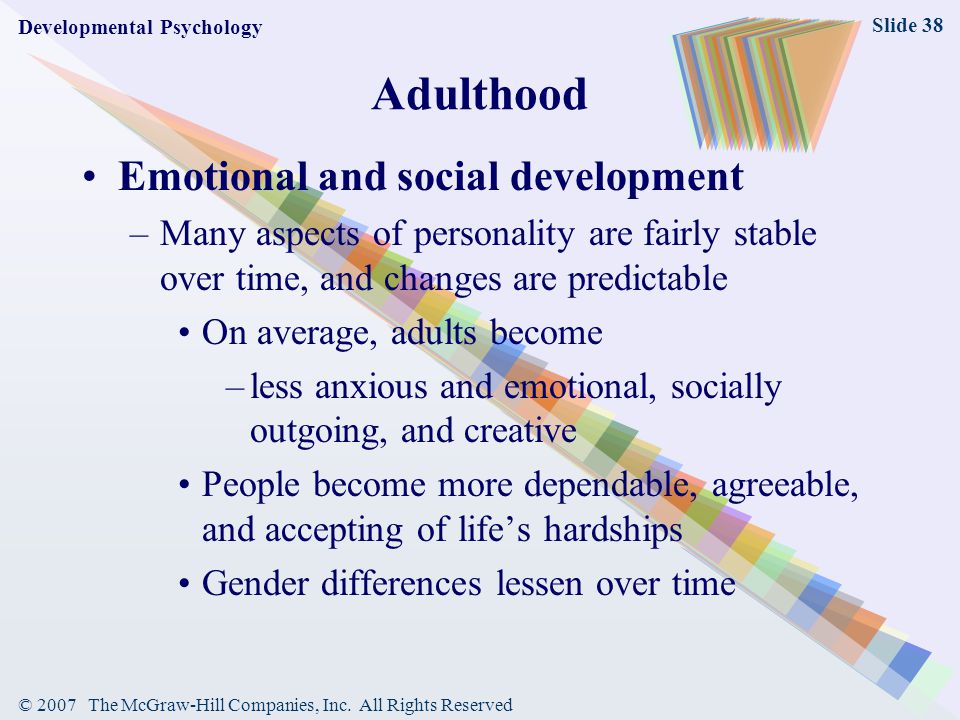
Emerging adulthood is a phase of the life span between cence and full-fledged adulthood which encompasses late cence and early adulthood, proposed by Jeffrey Arnett in a 2000 article in the American Psychologist.